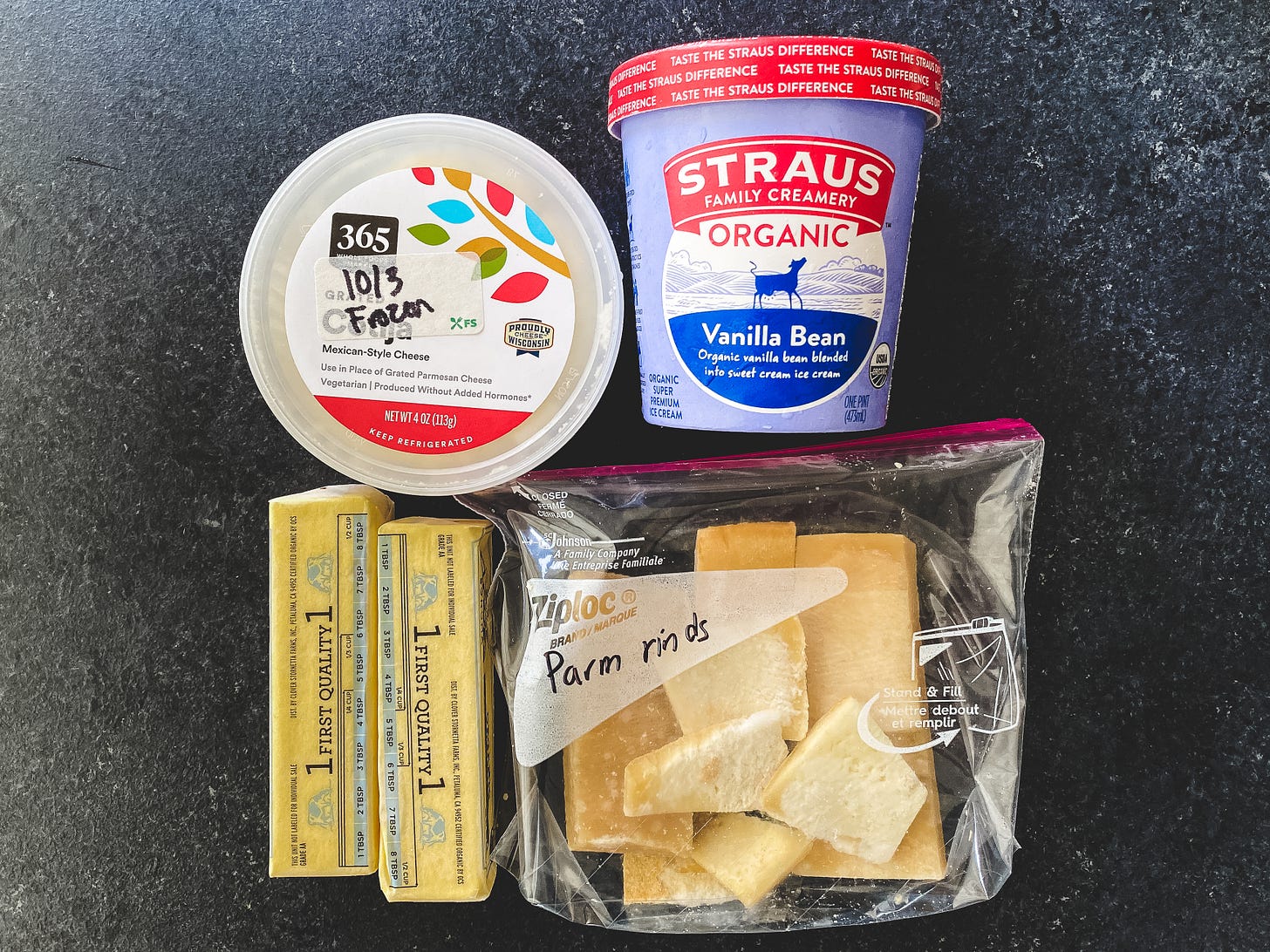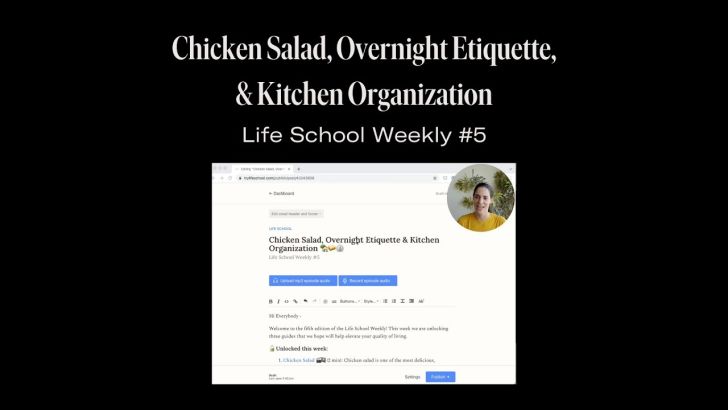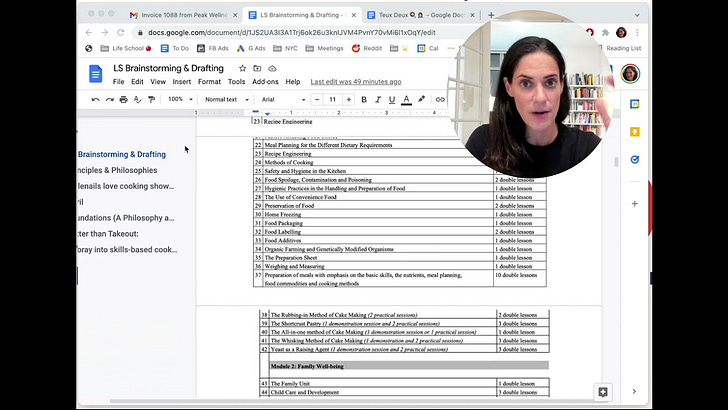Today’s lesson is 423 words, a 1 min 41 sec reading time. It is the ninth lesson of How to Hack Your Freezer.
📍 Introduction:
Whether you are heading out on vacation, or simply want to minimize trips to the grocery store, a little knowledge about freezing dairy & egg products can go a long way.
While virtually all milk products can freeze safely, most lose their creamy texture in the process. Eggs fare similarly. The following notes & tips will help you determine what to freeze, why it’s worthwhile, and how to make the most of things after the thaw.
📝 Notes, Tips & Tricks:
General:
What makes freezing dairy tricky is that its components (e.g., fat, water, dairy solids) freeze at different temperatures. This leads to separation and crystallization (e.g., grainy ice cream).
Sugar & salt help preserve flavor and texture - hence why ice cream and frozen yogurt store better than milk or yogurt alone.
Before going on a trip, transfer dairy items into freezer-safe containers (learn more here); you can always decide later if you need/want the item.
Remember - freezing does not reset the expiration point. Don’t wait until something is close to expiration before freezing.
Thaw dairy & eggs in the refrigerator to reduce bacterial growth. Do not refreeze these items.
Freezing Dairy:
*In loose descending order of “freeze-ability”
Butter: wrap in foil or plastic; can be frozen for six months
Ice Cream: lasts longer if airtight (e.g., with saran wrap under the lid); if partially melted, it’s particularly prone to freezer burn (think bigger, crunchier crystals); don’t store in the door (warmest part of the freezer)
Cheese: may become mealy or crumbly; best for use in cooked dishes; pre-grate block cheese for easier use later; lasts four months
Cream: freezes okay if whipped (e.g., ice cream, whipped cream), not recommended otherwise
Milk: okay to freeze but likely to separate & have an odd/grainy texture; make sure to leave room for expansion; stir or shake vigorously upon defrosting to restore texture; lasts one month
Sour cream, yogurt, buttermilk, cream cheese, cottage cheese: all may separate and lose their smooth texture; can still be used in cooking; worth trying if going on a trip; aim for < three months storage
Freezing Eggs:
Egg Whites: freeze very well in containers or ice cube trays
Mixed Eggs: can be frozen in small containers or ice cube trays; blend thoroughly, minimize bubbles and add a little salt to improve texture
Whole Eggs: Do not freeze. Will crack if left in the shell.
🎓 Further Study:
Gear for Freezing [Life School]
Freezer Stocking Reference Guide [Life School]
Freezing Dairy Products, Eggs & Other Foods [North Dakota State]
How to Freeze Dairy Products [Once a Month Meals]
——————————————————
🙋♀️ Got feedback? Fill out this form. (This helps make us better 😄)
🎧 Prefer to listen? Subscribe on iTunes, Spotify, or Overcast.
📚 Want to learn more? Check out other lessons in the Table of Contents.










